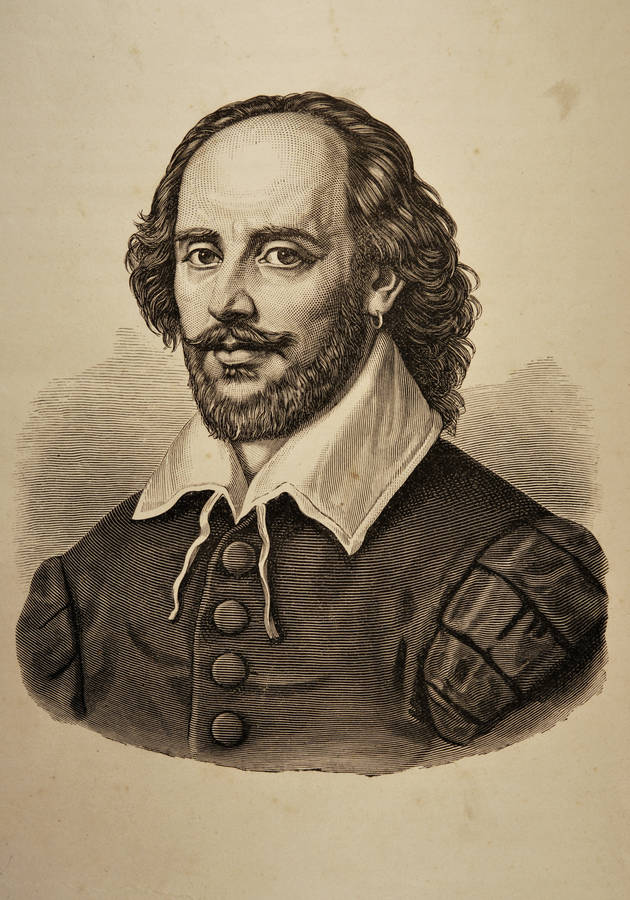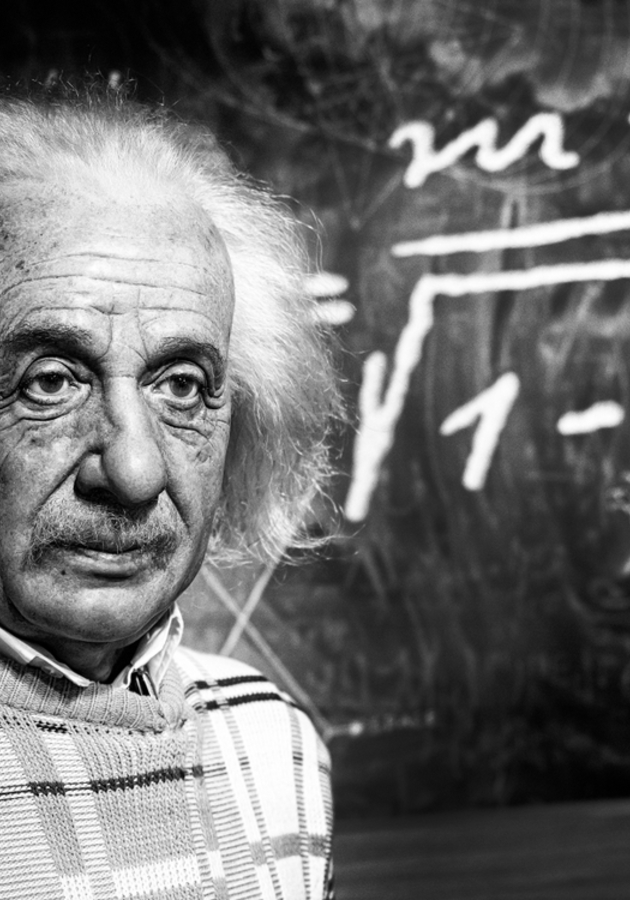Born almost half a millennium ago, William Shakespeare is generally acknowledged to be the greatest of all English writers and one of the most extraordinary creators in human history. His oeuvre consists of two long narrative poems, 154 widely acclaimed sonnets, and about 40 plays – more than half of which are considered masterpieces. And yet, the first allusion to him as a playwright isn’t complimentary, but a vitriolic attack on his skill.
“The only Shake-scene in a country”
In the last days of 1592, a curious little pamphlet was published in Elizabethan England under the baroque title “Greene’s Groats-Worth of Wit, Bought with a Million of Repentance.” It contained, according to its publisher, the dying wishes of Robert Greene, arguably the most popular dramatist of the previous generation.
Greene had died just a few months before, penniless and livid with the actors of his age. He makes this feeling particularly known in one famous section of the pamphlet, which takes the form of a letter addressed to his successors – three sophisticated playwrights collectively known as the “university wits.” He warns them to stop writing for the theater since they might end up just like him, broke and forsaken by the very people they are making rich: the actors, “those puppets […] that spake from their mouth.”
“Yes, trust them not,” Greene goes on, “for there is an upstart crow beautified with our feathers that, with his ‘Tiger’s heart wrapped in a player’s hide’, supposes he is as well able to bombast out a blank verse as the best of you, and being an absolute ‘Johannes Factotum’, is in his own conceit the only Shake-scene in a country.”
These hostile and unkind words are the first public notice of William Shakespeare, then merely a 28-year-old beginner with just a few plays under his belt. But just six years and about a dozen plays later, a young churchman by the name of Francis Meres would describe this same playwright as “mellifluous and honey-tongued,” remarking that if the Muses could speak English, they would speak with “Shakespeare’s fine-filled phrase.” Amazingly enough, Shakespeare wrote almost all of his best plays afterward.
“One man in his time plays many parts”
There are a few ways to interpret Greene’s 1592 diatribe, but the most common one totters along these lines. A Cambridge-educated man, Greene accuses Shakespeare of being a social climber and an unschooled charlatan, passing off the verses of the “university wits” as his own. Moreover, he alleges that this “Shake-scene” – an obvious pun on Shakespeare’s name – thinks himself superior to everyone else and wrongly believes he might be capable of doing anything and everything. In modern parlance, the uncomplimentary Latin phrase “Johannes Factotum” can be translated as “Johnny do-it-all” or “jack-of-all-trades”; the implication “master of none” is obvious.
Shakespeare was, indeed, quite a few things in his life: an actor, a playwright, a poet, a businessman. Arguably, he is much better known today for the parts he was made to play posthumously: a national bard, a universal genius, an unmatched philosopher, an impostor – to name just a few. In some of these roles, he excelled; in others he faltered – the successes outweighing the failures by a wide margin. To avoid the pitfalls of idolatry and paint a more complete portrait of the man routinely considered the world’s greatest dramatist, perhaps it’s best if we go over a few parts Shakespeare played in his time, and discover what made him a unique man for all ages.
Shakespeare, the person
Even though documentary evidence for Shakespeare is more extensive than for any other Elizabethan playwright except Ben Jonson, not much is known with acceptable certainty about his life.
He was baptized on April 26, 1564, and probably born just a few days before. His father John was a successful glovemaker and an esteemed citizen of Stratford, so it’s safe to suppose that he sent his son to the recently founded King’s New School, a prized grammar school. Shakespeare probably left school when he was about 15. At the age of 18, he married Anne Hathaway, a woman eight years his senior. Anne was already pregnant at the time of the marriage and, six months later, gave birth to a daughter, Susanna, on May 26, 1583. Twins, Hamnet and Judith, followed at the beginning of 1585.
From the birth of Shakespeare’s twins to Greene’s 1592 pamphlet, there is a gap in the record of Shakespeare’s life. Presumably at some time during this “dark” 7-year period, he joined a touring theater company that came to visit Stratford, and then accompanied the actors to London. There, he quickly made a name as an actor and a playwright and, in 1594, became a key member of the most successful theatrical organization in Elizabethan England: the Lord Chamberlain’s Men.
In 1596, at the age of 11, Shakespeare’s only son Hamnet died. That same year, the College of Heralds granted him a coat of arms, bestowing on him the status of “gentleman.” At the time, this distinction had a real social significance, only about 5% of the population could claim gentry status. In addition to becoming a gentleman, Shakespeare was slowly becoming the leading dramatist of the period as well, owing to the successes of “Romeo and Juliet,” “A Midsummer Night’s Dream,” and “The Merchant of Venice.”
A canny investor, he started acquiring property both in London and Stratford and, in 1597, bought the second-largest house in his hometown. Two years later, with the other members of his playing company, he became a part-owner of the newly-built Globe Theater. “As You Like It” and “Hamlet” were some of the first plays to be performed there. In 1603, after Queen Elizabeth died, Shakespeare’s troupe added an important new success to their already great prosperity: they became servants of the new ruler, King James I. From then on, they were known as the King’s Men, and Shakespeare’s plays were now regularly performed at the royal palace.
Shakespeare wrote almost all of his best-known tragedies – “Othello,” “King Lear,” “Macbeth” – in the following three years. Afterward, he turned to tragicomedy and romance, bidding a poignant farewell to the theater with “The Tempest,” whose protagonist Prospero announces the end of all revels and promises to drown his book “deeper than did ever plummet sound.”
In 1613, the Globe was destroyed by fire. That same year, at the age of 49, Shakespeare appears to have retired to Stratford, where he died three years later, on April 23, his presumed birthday.
Shakespeare, the playwright
The year of Shakespeare’s death (1616), his contemporary Ben Jonson – by then, widely admired as England’s best writer – became the first dramatist to have his works collected together and published as a whole. This was an unprecedented event: in Elizabethan England, dramas were seen as something fashionable and meant for the stage, and not as something enduring and financially appealing as a published book.
Fortunately, Jonson’s “Complete Works” proved popular and inspired two of Shakespeare’s fellow actors and close friends, John Heminges and Henry Condell, to produce the “First Folio,” a collected edition of Shakespeare’s plays. Published in 1623, the volume was prefaced with a commendatory poem by none other than Jonson, who – though usually arrogant and provocative – here praised his friend Shakespeare as England’s best poet and history’s supreme playwright. “He was not of an age but for all time,” remarked Jonson in one of the verses, setting the foundation of the modern idea of Shakespeare as the universal and timeless genius.
But, in reality, Shakespeare was pretty much a man of his age. His plays were written in the dominant style of the day and reflected the conventional values of his period; almost all of their stories had already been told by someone else before him; he rarely – if ever – broke the theatrical conventions set by his predecessors. So, what is it then that makes his works so lasting and ever-relevant? Four things seem to stand out:
- His language. In his plays, Shakespeare employs more than 21,000 separate words, and every 12th of them is his creation. To give just a random selection: he seems to have invented the verb “puke,” the noun “critic,” the adjective “fashionable,” and the adverb “instinctively.” It’s not true that he has coined more new English words than anyone else, but it is certainly true that he did this with unprecedented ease.
- His imagination and imagery. It isn’t just the number of words: it’s also what Shakespeare was able to do with them that counts. A master of figurative language, he could construct powerful pieces of rhetoric such as Mark Anthony’s speech in “Julius Caesar” and beautiful passages of lyrical verse such as the love scenes of “Romeo and Juliet.” He could dash off witty and even vulgar remarks as those of Bottom in “A Midsummer Night’s Dream,” or Malvolio in “Twelfth Night,” and also compose heightened speeches as the ones uttered by Macbeth or King Lear in the eponymous plays. When the plot demanded, he was able to write a memorable soliloquy such as Hamlet’s “to be or not to be,” and when necessary, he knew how to be economical as well, as in those famous cries from the third part of “Henry VI” and “Richard III”: “Off with his head” and “A horse, a horse – a kingdom for a horse!“
- His universality and dexterity. Shakespeare was extremely versatile. In fact, it’s not an overstatement to say that he is the only dramatist in history who excelled equally at both comedy and tragedy. We don’t even expect comedies from Sophocles and Racine, or tragedies from Aristophanes and Molière; Shakespeare gave us not one – but a few perfect specimens of both. A peasant-turned-gentleman, he knew how to satisfy the tastes of the monarchs and the expectations of the “groundlings” – the poorest of the poor who could only watch his plays from the “yard” of the theaters for a single penny. To this very day, Shakespeare’s plays have the capacity to delight schoolchildren as well as veteran playgoers.
- His ability to create three-dimensional characters. This is, more than anything, what separates Shakespeare from his contemporaries and almost any other playwright in history. Virtually every single character in him is lifelike and natural and “as much an individual as those in Life itself; it is as impossible to find any two alike.” In the words of Harold Bloom, a modern admirer of Shakespeare, “Cervantes rivals him with two giant personalities: Don Quixote and Sancho Panza, but Shakespeare has hundreds. Barnardine, in ‘Measure for Measure’, speaks only four times, and for a total of seven sentences, and yet we know him completely.” Some other characters – such as Hamlet, Falstaff, Iago, Lear, and Macbeth – we seem to know even better than ourselves.
Shakespeare, the poet
When the London theaters were closed because of a plague between 1592 and 1594, the always-practical Shakespeare turned to nondramatic poetry – in the hopes of earning some money from a wealthy patron. The result was “Venus and Adonis” and “The Rape of Lucrece,” two narrative masterpieces dedicated to the Earl of Southampton. At about this time, Shakespeare also started writing his sonnets, popular 14-line poems constructed of three quatrains and a final couplet. The form was invented by Italian poet Petrarch in the 14th century and soon after swept across Europe, begetting thousands of imitators before Shakespeare tried his hand at it.
First published (probably without Shakespeare’s consent) to lukewarm reception in 1609 – and reviled for centuries due to their predominantly homosexual nature and several sexually explicit references – Shakespeare’s sonnets are now considered by many to be some of the greatest love poems ever written. One hundred fifty-four in all, they form a loose plot-cycle, revolving around the relationships of the author with three main characters: the Fair Youth, the Dark Lady, and the Rival Poet.
We don’t know if these are based on real people, but probably it is beside the point to discuss this. The sonnets are great not because of their story or autobiographical importance, but because of their immense artistic beauty. Some of them – for example, 18, 29, 106, 116, 129, 130 – are densely rich in unforgettable lines whose “warmth of feeling, glow of imagery, and grace of phrase” hasn’t been surpassed to this day. Shakespeare might have been aware of this himself: “Not marble, nor the gilded monuments of princes shall outlive this powerful rhyme,” he wrote at the beginning of his famous 55th sonnet. Time proved him right.
Shakespeare, the philosopher
Two centuries after Shakespeare died, English Romantic poet Samuel Taylor Coleridge wrote that “[Shakespeare] was not only a great poet but a great philosopher,” and described him as “the greatest genius that perhaps human nature has yet produced.” To this day, many have echoed Coleridge’s sentiment.
However, this is an exaggeration: Shakespeare was, in truth, neither a scholar nor a philosopher. He knew “small Latin and less Greek,” had apparently read only a few ancient works, and was not beyond making egregious geographical and historical errors in his plays. Moreover, he wasn’t – like his very learned contemporary Jonson – someone who’d speak for injustice or risk the comfort of his life for ideals and principles. It’s safe to say that, just like the majority of people, he didn’t really have any.
But, perhaps, this is what made him such a unique artist. A keen observer of human nature, he never filtered the thoughts of his characters through his own attitudes and beliefs. Even when he judged some of them, he did this for the sake of convention, and not because he was in any way moralistic. He knew that “our virtues lie in the interpretation of the time” and that “there's nothing good or bad but thinking makes it so.”
So, rather than interpreting what he saw, he chose to merely portray it. This is immeasurably more difficult than it might sound. It’s almost impossible to be neutral; Shakespeare, somehow, constantly is. We know so little about him because he doesn’t portray himself anywhere in his plays or sonnets. He is, in the words of Alexander Pope, “above all writers, the poet of nature: the poet that holds up to his readers a faithful mirror of manners and of life.” When you read other great authors, you mostly study their brains and hearts; when you read Shakespeare, you study everything but him.
“Everything and nothing”
Popular French novelist Alexandre Dumas noted once that, “after God, Shakespeare has created most.” A century after him, Spanish writer Jorge Luis Borges went a step further, equating the two in a beautiful and often-quoted parable.
“I who have been so many men in vain want to be one man only – myself,” says Shakespeare to God in Borges’ story. “Neither am I what I am,” replies God out of a whirlwind. “I dreamed the world the way you dreamt your plays, dear Shakespeare. You are one of the shapes of my dreams: like me, you are everything and nothing.”
In this final paradox, Shakespeare is indeed no different than the supreme creator: when all it’s said and done, they both seem to have created people far more real than themselves – and then, astounded by their own creations, retreated into anonymity.
Sources
Works by Shakespeare
- William Shakespeare, The New Oxford Shakespeare: The Complete Works [Gary Taylor, John Jowett, Gabriel Egan and Terri Bourus, eds.] (Oxford: Oxford University Press, 2016),
Main biographical
- G. B. Harrison, Introducing Shakespeare (New York: Penguin Books, 1947).
- David Bevington, “General Introduction,” The Complete Works of Shakespeare, 3 edn. (Scott, Foresman and Company, 1980), pp. 1-95.
- Jonathan Bate, “General Introduction,” in RSC’s Complete Works of William Shakespeare, ed. Jonathan Bate and Eric Rasmussen (Modern Library, 2007) [ePub].
- Gary Taylor and Terri Bourus, “Why Read Shakespeare’s Complete Works?” The New Oxford Shakespeare, ed. Gary Taylor, John Jowett, Gabriel Egan and Terri Bourus (Oxford: Oxford University Press, 2016), pp. 1-43.
Other and contextual
- Will Durant, “William Shakespeare (1452-1482),” The Story of Civilization, Vol. V: The Age of Reason Begins (New York: Simon & Schuster, 1961), pp. 87-109.
- Harold Bloom, “William Shakespeare,” Genius: A Mosaic of One Hundred Exemplary Creative Minds (Warner Books, 2002), pp. 16-30.
- Stanley Wells et al., The Shakespeare Book (DK, 2015).
- Robert Bearman, “How rich was Shakespeare,” Prospect (March 25, 2016). [https://www.prospectmagazine.co.uk/arts-and-books/how-rich-was-shakespeare]





























